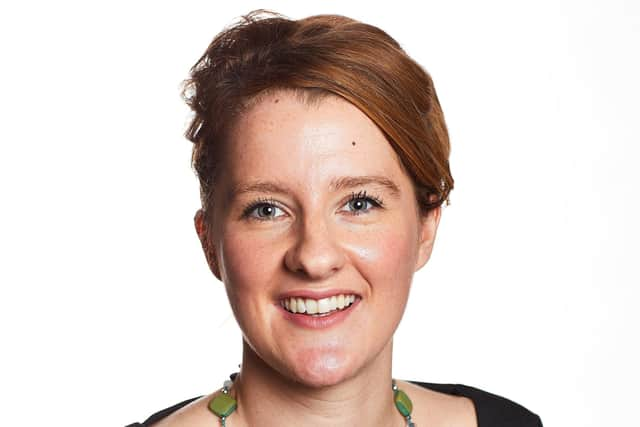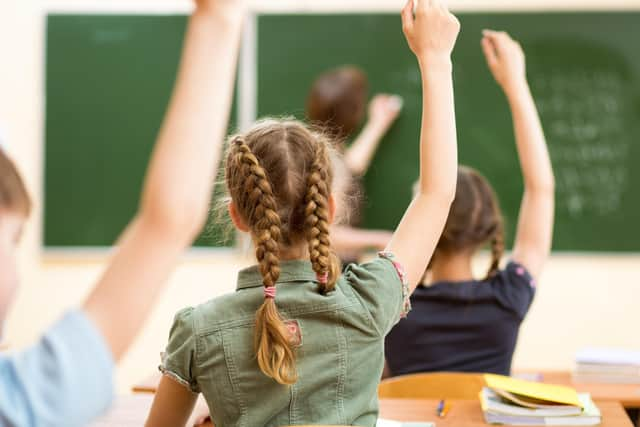This flawed system marks down North’s schools – Fiona Spellman


Choosing your child’s secondary school can be a tough decision. Moving from the nurturing environment of a primary school into a much larger institution can be a tough transition point for students, and, as children travel independently to school, parents can feel less involved in what’s happening.
No wonder then that parents take the process of choosing a secondary school seriously. Every parent wants the best for their children and with limited places available, league tables and Ofsted ratings are often used as the basis to choose which schools are best.
Advertisement
Hide AdAdvertisement
Hide Ad

It’s no accident that property websites list the Ofsted ratings of local schools as part of their marketing efforts, and schools with strong performance ratings naturally attract many more applications from parents than those which are deemed to be struggling.
As a result of increasing birth rates in the early 2000s, demand for school places has increased significantly over the past five years and which is now having a knock-on effect on secondary schools, adding further intensity to the race for a strong school place.
However, the truth is the basis of these judgments is deeply flawed. Currently the Department for Education uses a measure called Progress 8 to determine secondary school performance. This takes pupils’ performance in eight qualifications to assess the progress children make between the end of primary school and the end of secondary school, as though prior attainment is the only factor which determines how students attain at GCSE.
The Fair Secondary School Index, published last year by the University of Bristol and the Northern Powerhouse Partnership, shows that more than half of schools currently classed as ‘underperforming’ would no longer fall into this category if pupil background was taken into account in progress measures. In fact, a fifth of schools would see their place in national league tables leap more than 500 places if factors including deprivation, ethnicity and special needs were considered.
Advertisement
Hide AdAdvertisement
Hide Ad

From my own experience of teaching, I can attest that teachers in areas of disadvantage constantly find themselves battling issues which originate beyond the school gates, and that the job of a teacher in these circumstances is far broader than an equivalent position in a more affluent place.
As perceptions of school effectiveness make these schools less attractive for parents, those which are already deemed to be the lowest performing then disproportionately serve children with the highest needs.
There is a particularly pervasive narrative about the shortcomings of secondary schools in the North of England. This is a huge problem in education, as we make it harder for schools in more disadvantaged areas to attract and retain great teachers, and we fail to recognise the incredible work our teachers are doing every day to improve children’s lives.
Since SHINE moved to Leeds in 2017, we’ve invested more than £3.5m in education programmes across the North, helping unlock barriers to learning before school and then supporting inspirational teachers in the classroom. Every one of these incredible teachers has a deep-seated commitment to improving education outcomes, and many are under recognised for the enormously important work they do.
Advertisement
Hide AdAdvertisement
Hide AdRather than penalising schools who serve children with the highest needs, we should be recognising much of the incredible practice happening in these areas and rewarding people who choose to work in such challenging contexts.
The current system of accountability for schools is fundamentally flawed. Until we are more honest about the actual drivers of educational performance, we will be stuck in a cycle which drives perverse incentives for parents, schools and teachers, and which fails to fully recognise the incredible achievements of schools in challenging circumstances.
For a more accurate assessment of school performance, I’d encourage all parents to look at the Fair Secondary School Index. You may be surprised at what you learn.
Fiona Spellman is CEO of Yorkshire-based education charity SHINE.
Comment Guidelines
National World encourages reader discussion on our stories. User feedback, insights and back-and-forth exchanges add a rich layer of context to reporting. Please review our Community Guidelines before commenting.